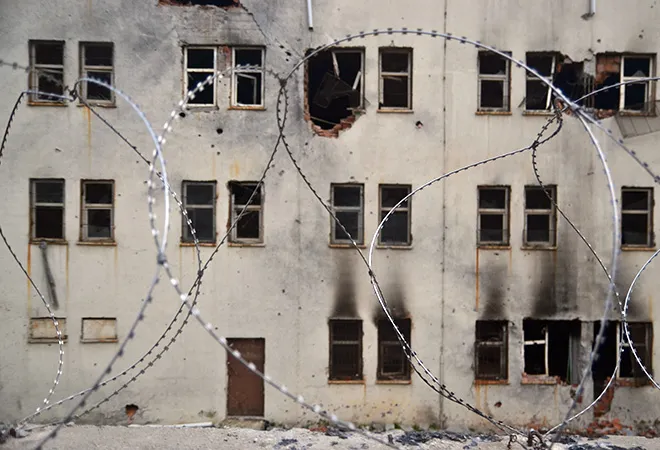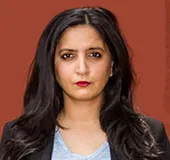-
CENTRES
Progammes & Centres
Location
For years now, the Syrian government has allegedly continued to violate the basic obligations of international law.

A recent investigation by the United Nations concluded that the Syrian government bombed humanitarian infrastructure in northwest Syria and in some cases even dropped barrel bombs. Such deliberate use of indiscriminate weapons and shelling on civilian targets makes Bashar al-Assad’s government potentially liable for war crimes. The use of barrel bombs violates the United Nations Security Council 2139 — signed back in 2014 with Russia and China on board.
The UN inquiry, unequivocally, refuted the Syrian government’s claims that all healthcare facilities in the Idlib governorate had been overrun by jihadist extremists, were dysfunctional and had converted into mere safe spaces for terrorists to launch attacks on the government. It said while the rebels were in the vicinity, they were not based inside any of the healthcare facilities investigated and did not disrupt their functioning. Despite the fact that it attributed the attacks to the Syrian government, the much-awaited inquiry has been criticised on many counts by human rights activists.
Whilst activists claimed hundreds of attacks on hospitals, the UN investigated just seven cases which included a refugee camp. The blame for attacking a Palestinian refugee camp in Aleppo was put on the jihadist rebels of Hayat Tahrir al-Sham
Physicians for Human Rights
Through the course of the war, the Syrian government bombed humanitarian infrastructure as a strategy to gain an advantage against the rebels. The Syrian Armed Forces targeted hospitals and schools first as a warning to force people out of hiding in their homes and into flight. With the civilians gone the rebels lost their reason to hold on to the territory and were coerced into agreeing to de-escalation agreements. Other than its limited scope, there are several contradictions in the report. It says that the Syrian government bombed hospitals on the UN deconfliction list and yet leaves room for Damascus to plead ignorance.
Under the UN deconfliction mechanism warring parties share information through the UN about humanitarian activities and infrastructure and are obliged to let them work. Syrian rebels and doctors and teachers have been sharing the addresses of humanitarian infrastructure with the UN — which in turn passed it on to Assad’s main ally Russia — in the hope that the UN mechanism would deter Assad from attacking hospitals. However, some who were more cynical also shared the coordinates to prove to the world that even if the Syrian government knew where the hospitals were, it would still pull the trigger.
But the UN report leaves manoeuvring room for the Syrian government when it says that it is unclear if Russia shared the information with Damascus. It further riles up the activists when it recommends that in future the information be shared directly with the Syrian government as well as the armed actors — including the jihadists. While there is an argument to be made that sharing the details of humanitarian facilities directly with the leading parties at war would make it hard for them to deny responsibility later, activists are worried. The fear is that handing the coordinates to the government on one side and to the jihadists on the other would just make it easier for them to target civilian populations on either side.
The UN’s deconfliction mechanism has courted controversy over the years with many reputed humanitarian organisations opting to stay out of it. For instance, Médicins Sans Frontières (MSF) and the International Committee of the Red Cross (ICRC), make their own arrangements. MSF has said that from the start of the conflict in 2011, the government has targeted health workers in opposition-controlled areas, coercing them to provide care underground. When it comes to health facilities being hit, whether targeted or indiscriminate, the attacks are clear breaches of international humanitarian law and the frequency with which medical facilities have been hit in this war have outraged humanitarians.
Back in 2016, then UN Secretary-General Ban Ki-moon condemned attacks on medical facilities in Syria by the Syrian government and accused the government of committing war crimes. He had said: “Let us be clear: intentional and direct attacks on hospitals are war crimes. Denying people access to essential healthcare is a serious violation of international humanitarian law.” But for years now the Syrian government has allegedly continued to violate the basic obligations of international law. The recent inquiry by the UN does little to hold the Syrian government and Russia accountable.
The views expressed above belong to the author(s). ORF research and analyses now available on Telegram! Click here to access our curated content — blogs, longforms and interviews.

Anchal Vohra was a Fellow at ORF. She writes on contemporary developments in West Asia and on foreign policy.
Read More +